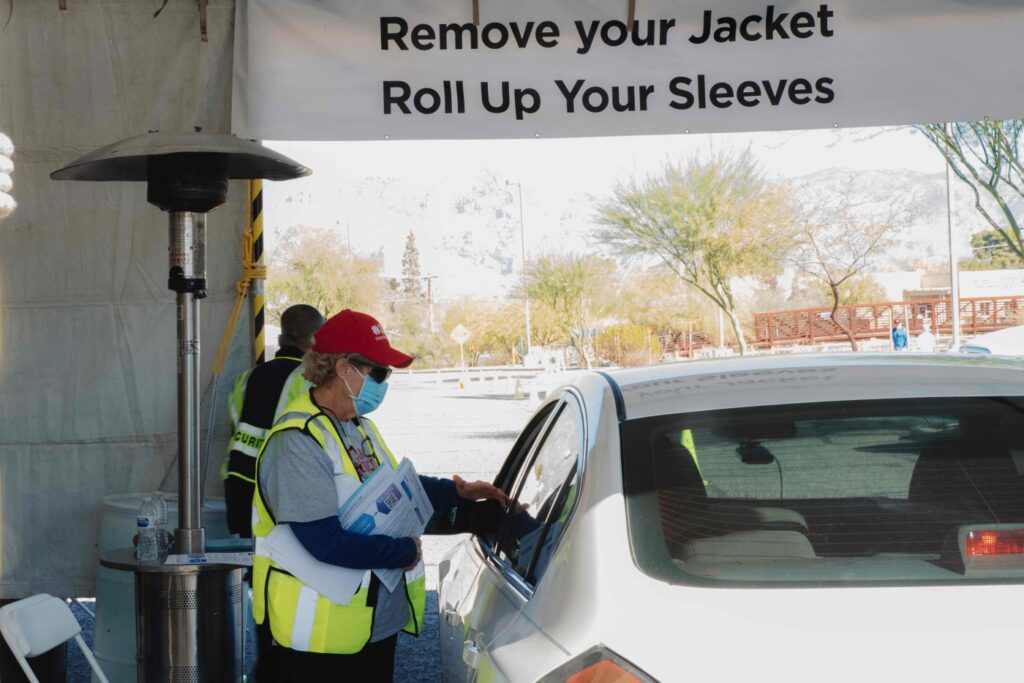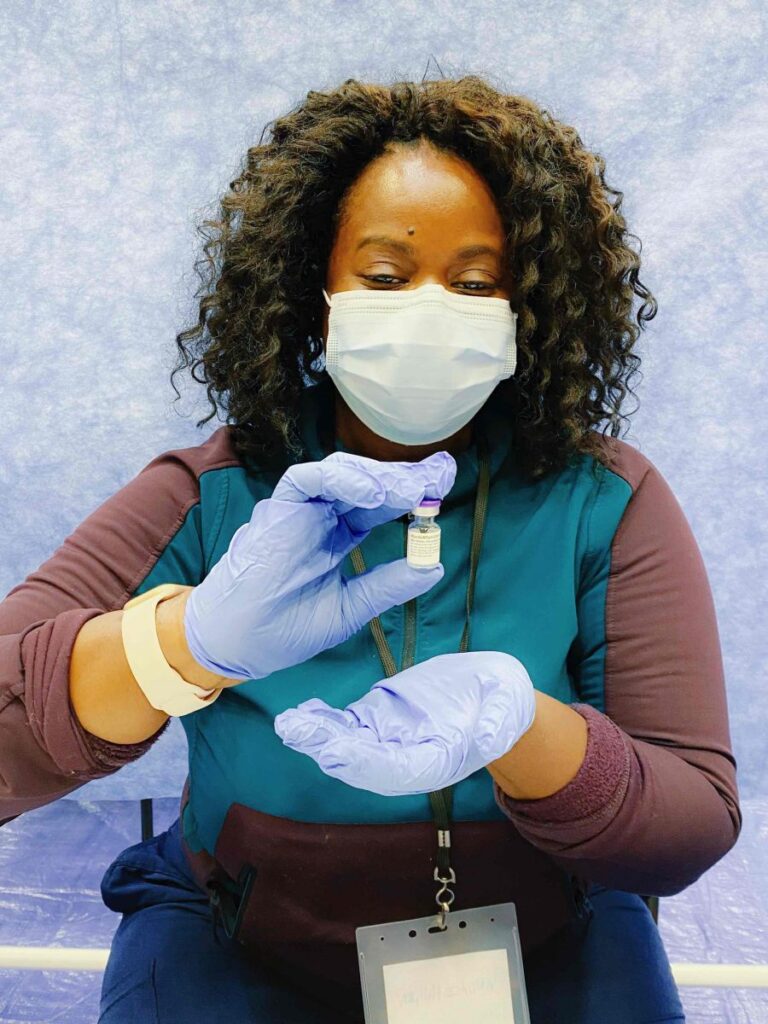It’s a cloudy day in Chicago and doctors and nurses queue up at Malcolm X College, near the city’s west side. In front of them, the line snakes through stages and stations. In scrubs and street clothes, the first responders and frontline workers fill out paperwork, then wait their turn until, at last, each arrives at the medic’s station. They roll up a sleeve and take the jab. Some cry. Some breathe a sigh of relief. At last, they’re getting a shot of protection; that precious first dose of the COVID-19 vaccine. Maybe it’s just a start, but it’s something.
This is just one of more than a dozen vaccination sites that veteran-led nonprofit Team Rubicon and its volunteers—or Greyshirts—have helped stand up across the United States. In Phoenix and Tucson, AZ, Greyshirts have already helped facilitate the vaccinations of more than 24,000 people. In Carson City, NV, Greyshirts have assisted with more than 2,100 vaccinations. In addition to the vaccine sites, volunteers are busy assisting at six COVID-19 testing sites in four rural counties nearby.

To be clear, it’s not Team Rubicon medics who are plunging the vaccine into arms at these locations. Rather, the volunteers—many of them veterans—are helping stand up the pods and run the logistics so that local doctors, nurses, and pharmacists can focus exclusively on the business of delivering the vaccine.
“We know our healthcare providers are fighting on two fronts—providing care to traditional patients and those affected by COVID, and in the critical mission of vaccinating our citizens,” says Art delaCruz, Team Rubicon’s President and Chief Operating Officer. “We need to ensure they are supported so we’re taking on operations and logistics where able to free their valuable skills for medical services.” Putting those with military experience to work supporting and standing up these sites has been only natural, explains delaCruz. “Military veterans are accustomed to the concept of ensuring those on the front lines are supported.”
The organization is hoping to capitalize on that experience and expertise by mobilizing veteran volunteers in underserved or under-resourced cities and communities across the country to help get more vaccines distributed in less time. In some cities that could mean simply standing up vaccination sites or supporting site setup and management. Or, as in Chicago, volunteers can be plugged in to handle logistical needs. There, on any given day, Greyshirts can be found providing warehouse support, handling inventory management and documentation, and even covering simple but essential tasks like ensuring that every station in a vaccination pod is fully supplied with gauze and pens.

That medical care providers need a break from the work of the pandemic is not lost on this organization, which has spent the pandemic recruiting medical volunteers to serve at places like the Navajo Nation. Where jurisdictions allow, Team Rubicon is looking to mobilize EMTs or military credentialed medical providers—men and women who delivered countless vaccines during their years in the service—to actually vaccinate people.
So far, the work done at the dozen or so sites across the U.S. is having an impact. The program has been so successful in Chicago that next week Team Rubicon volunteers will take on the logistics for another three sites, bringing it to six vaccination sites set up at colleges across the city. And, Team Rubicon is already on its second round of helping deliver the COVID-19 vaccine in Wyoming. In December, Greyshirts helped the Teton County Health Department distribute the first round of vaccinations to roughly 600 people. This month, the volunteer force returned to help get the second dose to those same first responders, healthcare workers, law enforcement agents, and long-term care facility residents and workers. Soon, they’ll be helping expand the program to people 80 and older.



